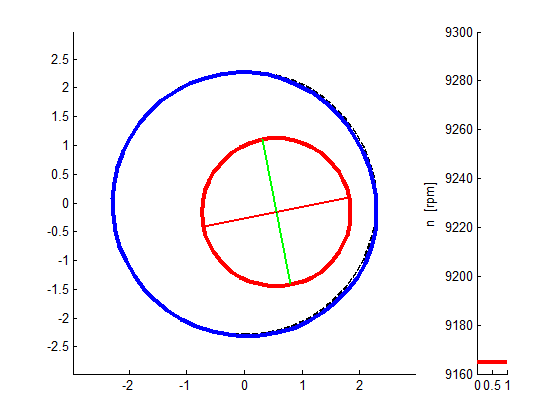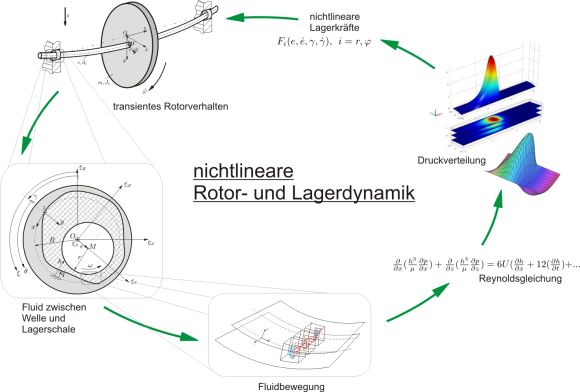
Dr.-Ing. Christoph Baum
Karlsruher Institut für Technologie (KIT)
Kaiserstraße 10
Gebäude: 10.23
76131 Karlsruhe
Gas Bearings in Rotordynamic Applications
The two major advantages of gas bearings compared to other lubricated bearings are inherently low viscosities and their chemical stability over a wide temperature range. Furthermore, the usage of gas lubrication can lead to auxiliary benefits, depending on the application. For example, a simpler lubrication supply, a contamination free environment, less maintenance and less noise generation. All these reason could additionally lead to reduced manufacturing- and maintenance costs.
Unfortunately, in gas bearing mounted rotors are prone for instabilities. Reasons are, for example, the low viscosity of the fluid film, resulting in a low damping characteristic and self-excited vibrations, caused by the bearing reacting forces. Consequently, a proper designing- and dimensioning process of the rotor-bearing system can be very extensive.
In order to identify the physical effects, derivate design guidelines for rotor-bearing-systems and detect the limitations of gas bearing technology, gas bearing – rotor interactions are studied. Currently, the focus is on time-efficient nonlinear bearing modelling for rotor dynamic simulation, as well as stability- and bifurcation analysis of the rotor.
Contact: Prof. W. Seemann, C. Baum
Publications
C. Baum, H. Hetzler, W. Seemann:
On the dynamics of a rigid rotor in air bearings with linear elastic bearing housings,
Proc. of ISROMAC-15, 2014, Honolulu
J. Wauer, H. Hetzler, C. Baum,
Damping Effects on Stabilizing Rotating Non-Circular Shafts Subjected to Pulsating Axial Force,
Proc. of Intl. Symp. on Vibration of Continuous Systems (ISVCS), 2013, Courmayeur
C. Baum, A. Boyaci, W. Seemann,
Modellierung und Analyse von kurzen Gleitlagern mit linear-elastischen Lagerwänden,
Proc. of SIRM 2013, Berlin


